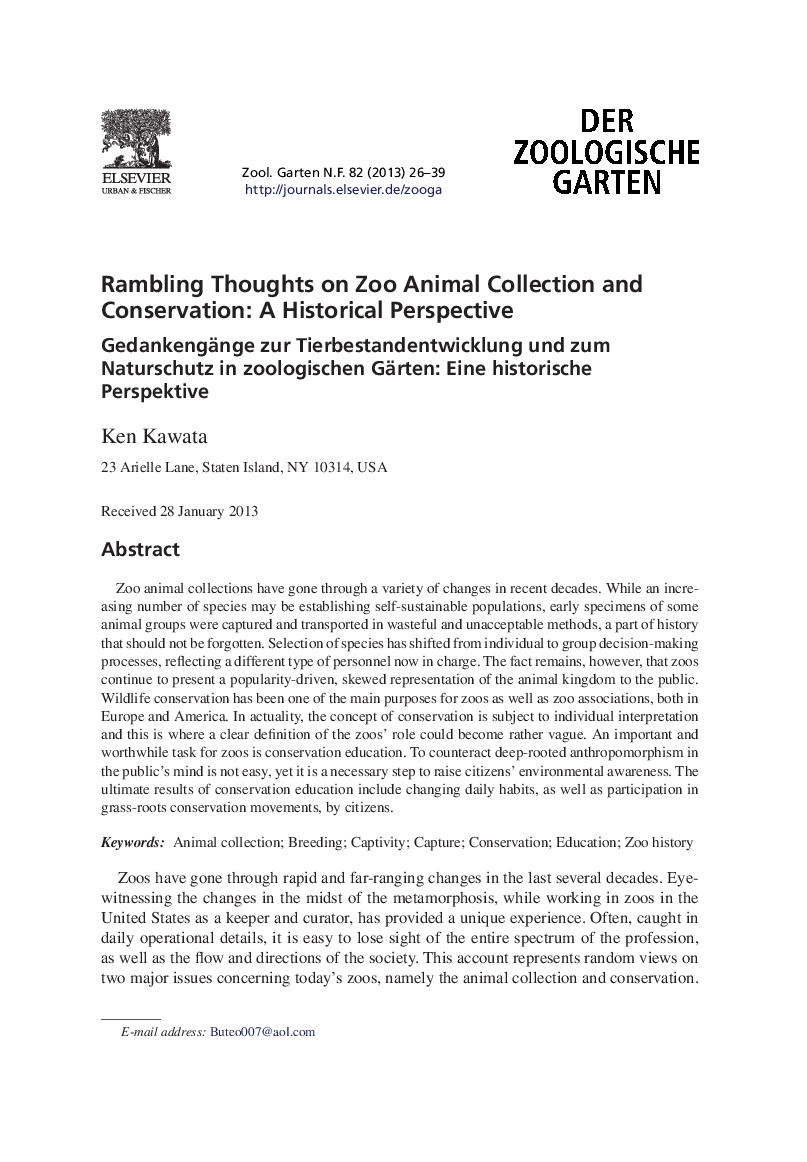| Article ID | Journal | Published Year | Pages | File Type |
|---|---|---|---|---|
| 2472901 | Der Zoologische Garten | 2013 | 14 Pages |
Zoo animal collections have gone through a variety of changes in recent decades. While an increasing number of species may be establishing self-sustainable populations, early specimens of some animal groups were captured and transported in wasteful and unacceptable methods, a part of history that should not be forgotten. Selection of species has shifted from individual to group decision-making processes, reflecting a different type of personnel now in charge. The fact remains, however, that zoos continue to present a popularity-driven, skewed representation of the animal kingdom to the public. Wildlife conservation has been one of the main purposes for zoos as well as zoo associations, both in Europe and America. In actuality, the concept of conservation is subject to individual interpretation and this is where a clear definition of the zoos’ role could become rather vague. An important and worthwhile task for zoos is conservation education. To counteract deep-rooted anthropomorphism in the public's mind is not easy, yet it is a necessary step to raise citizens’ environmental awareness. The ultimate results of conservation education include changing daily habits, as well as participation in grass-roots conservation movements, by citizens.
